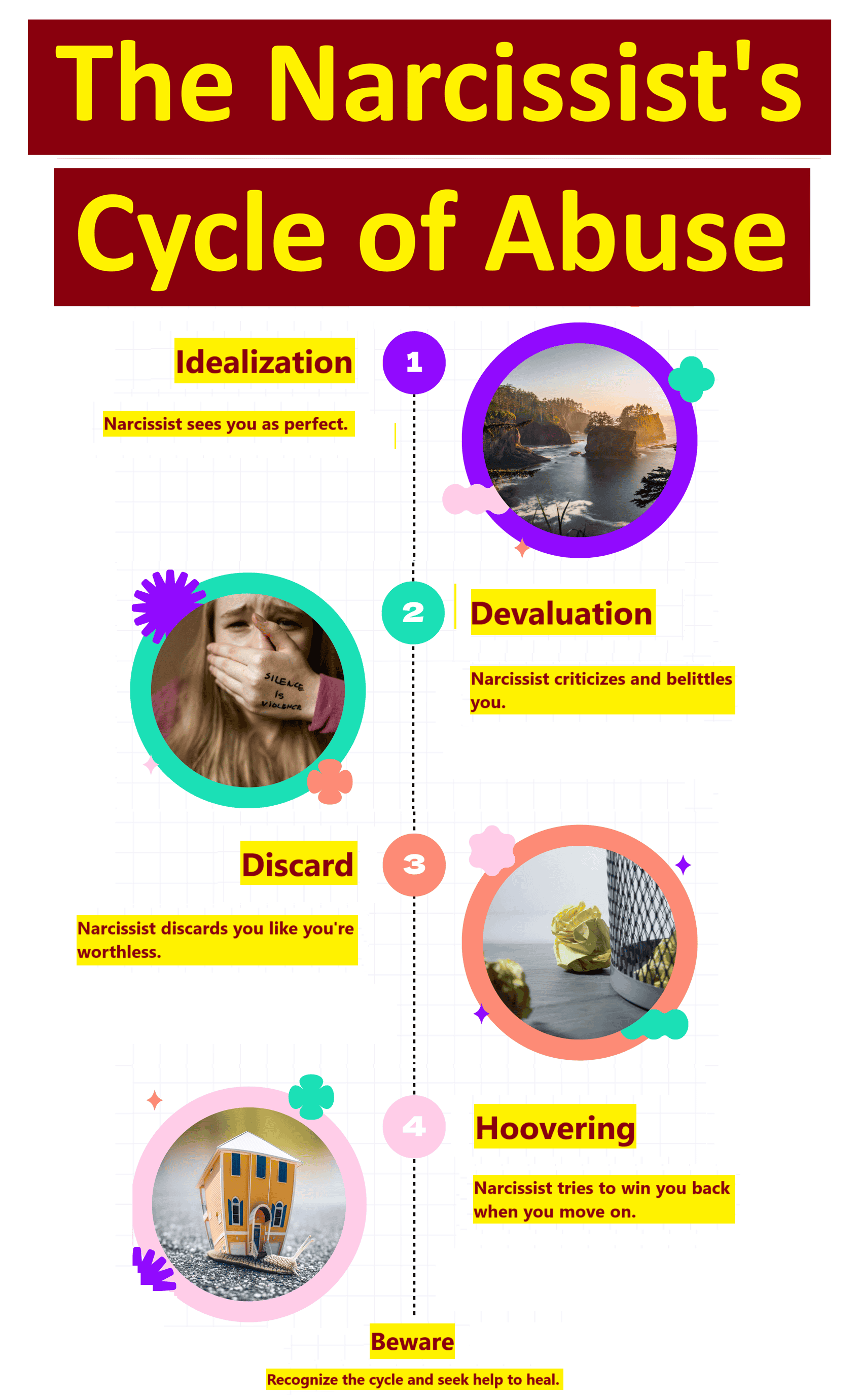10 Sneaky Tactics Used By Malignant Narcissists

Malignant narcissists are masters of manipulation, using sneaky tactics that can leave you feeling bewildered and drained.
These individuals often mask their true intentions behind a charming facade, making it difficult to pinpoint their deceptive behavior.
Let’s equip you with the knowledge to recognize these tactics and protect yourself.
Sneaky Tactics Used By Malignant Narcissists
1. Gaslighting (Altering Reality)
Gaslighting involves manipulating your perception of reality by consistently denying facts, memories, or events you know to be true. If faced with this tactic, you might doubt your sanity or memory.
2. Projection (Blaming Others)
Projection is when a malignant narcissist accuses you of actions or feelings they actually have. For instance, if they’re untrustworthy, they’ll claim you’re the one who can’t be trusted.
3. Silent Treatment (Manipulating Emotions)
The silent treatment is used to control and punish you by withholding communication or affection. This tactic creates an emotional void that leaves you feeling destabilized and anxious.
4. Triangulation (Creating Rivalries)
Triangulation involves introducing a third party to create jealousy or competition. By pitting you against someone else, a malignant narcissist keeps control and increases their sense of power.
5. Fearmongering (Instilling Anxiety)
Fearmongering involves spreading alarming information to create an environment of fear or anxiety. This tactic makes you more dependent on the narcissist for reassurance and guidance.
6. Perpetual Victimhood (Evading Accountability)
By portraying themselves as eternal victims, malignant narcissists manipulate your sympathy and avoid taking responsibility for their actions. They deflect blame, making themselves seem wronged.
7. Grandiosity (Inflating Self-Importance)
Grandiosity is a hallmark of malignant narcissism, where they exaggerate their influence, talents, or achievements. They want you to believe in their inflated sense of superiority.
8. Smear Campaigns (Discrediting Others)
Smear campaigns involve spreading lies or half-truths to tarnish your reputation. By discrediting you, they ensure others view them favorably and you with suspicion.
8. Emotional Blackmail (Gaining Leveraging Power)
Emotional blackmail exploits your feelings of guilt or obligation. Malignant narcissists use this to manipulate you into doing what they want, framing it as a condition for love or approval.
10. Devaluation (Undermining Self-Esteem)
Devaluation includes behaviors that chip away at your self-worth, such as constant criticism or belittling comments. This tactic leaves you feeling unworthy and more reliant on the narcissist for validation.
Recognizing and Dealing With Malignant Narcissists
Signs You’re Dealing With a Malignant Narcissist
Identifying a malignant narcissist is crucial for self-protection. Here are key signs to watch for:
- Extreme Lack of Empathy
They show no concern for your feelings or well-being. If someone consistently disregards your emotions, they might be a malignant narcissist. - Manipulative Behavior
They use charm, deceit, and manipulation to control others. Their charm often feels insincere once you see the pattern. - Grandiosity
They believe they’re superior to everyone else. This sense of superiority is evident in their behavior and speech. - Aggressiveness
They can become hostile or aggressive when challenged. This aggression can appear both verbally and physically. - Entitlement
They expect special treatment without earning it. If someone demands privileges without justification, it’s a red flag. - Exploitativeness
They exploit others for personal gain. Watch for patterns of using people without giving anything in return. - Paranoia
They harbor unwarranted suspicions of others. Their constant mistrust can create a toxic environment.
Strategies for Coping and Protection
Here are ways to cope with and protect yourself from malignant narcissists:
- Set Firm Boundaries
Define clear boundaries and enforce them. Don’t let the narcissist overstep personal or emotional limits. - Limit Contact
Reduce interactions as much as possible. This minimizes opportunities for manipulation and control. - Seek Support
Engage with friends, family, or support groups. A strong support network offers emotional strength and practical advice. - Document Interactions
Keep records of conversations and incidents. Documentation helps in case you need to explain the situation to others or seek legal recourse. - Stay Calm and Detached
Maintain emotional distance and stay calm. This approach prevents the narcissist from using your emotions against you. - Avoid Confrontations
Avoid direct confrontations that can escalate. Instead, use neutral responses and steer conversations away from conflict. - Focus on Self-Care
Prioritize your mental and physical health. Engage in activities that boost your well-being and resilience. - Educate Yourself
Learn about narcissism and its effects. Knowledge empowers you to recognize tactics and respond effectively. - Consult Professionals
Seek advice from therapists or counselors. Professional guidance can provide tailored strategies for your situation.
Final Thoughts
Spotting the tricks of malignant narcissists is key to keeping yourself safe. Recognize the signs, trust your gut, and stand firm on your boundaries.
Lean on friends, family, or professionals for support if you get tangled up with one. Your mental health and safety come first. Stay sharp and proactive to minimize the damage these toxic people can cause.










